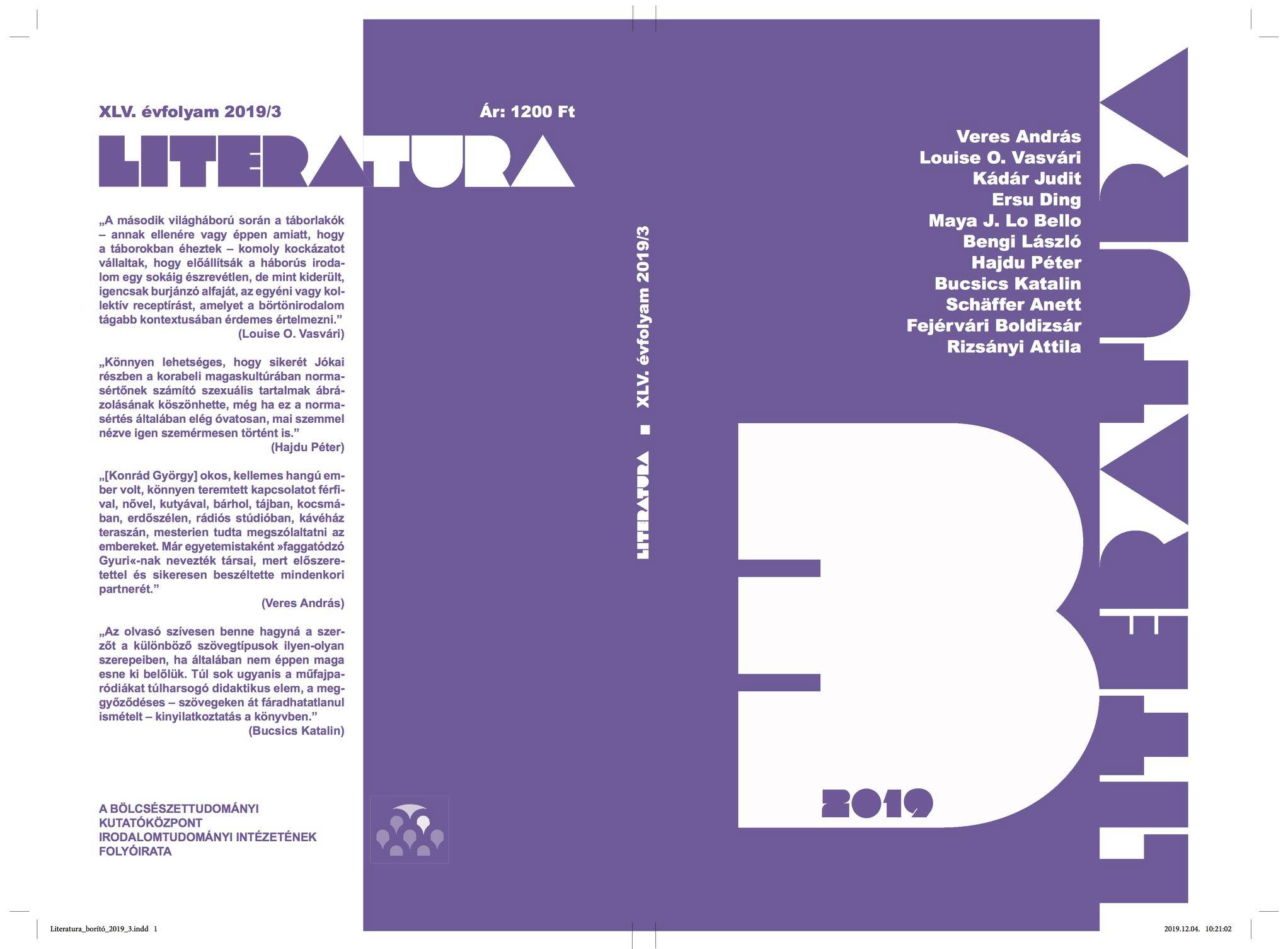A Proust-jelenség és a nők többgenerációs táplálkozási élettörténet-írása mint a holokauszt traumairodalma
Absztrakt
The Proustian Phenomenon and Women’s Multigenerational Alimentary Life Writing as Trauma Literature of the Holocaust
The present study is part of a larger project examining various forms of life writing created by several hundred women survivors of the Holocaust and their descendants. Here I discuss a subcategory of life writing, for which I propose the term alimentary life writing, in which the story of the self is closely linked to the production, preparation and consumption of food and where ‘alimentary’ refers not only specifically to food but also to the action of nourishing someone and hence to human relationships. First, I consider this form of writing briefly within the context of the history and the great significance food possesses as a cultural category, in the writings of Georg Simmel, Claude Levi-Strauss, and especially in Proust’s image of the madeleine, which for him represented the affective memory of the senses, different from conventional memory. I then discuss women’s alimentary life writing as trauma literature of the Holocaust, where associations attached to food, recipes, and recipe books are not only crucial to gendered family networks, but also to women’s gendered identity. Alimentary narratives, with their access to the „deep memory” of survivors that has essentially been considered untouched, can help unlock memories. Survivors and their second- and third-generation children blend their own lived experience and longing for continued group identity, to bear witness to the fragmented and traumatic chapters of Holocaust history.



